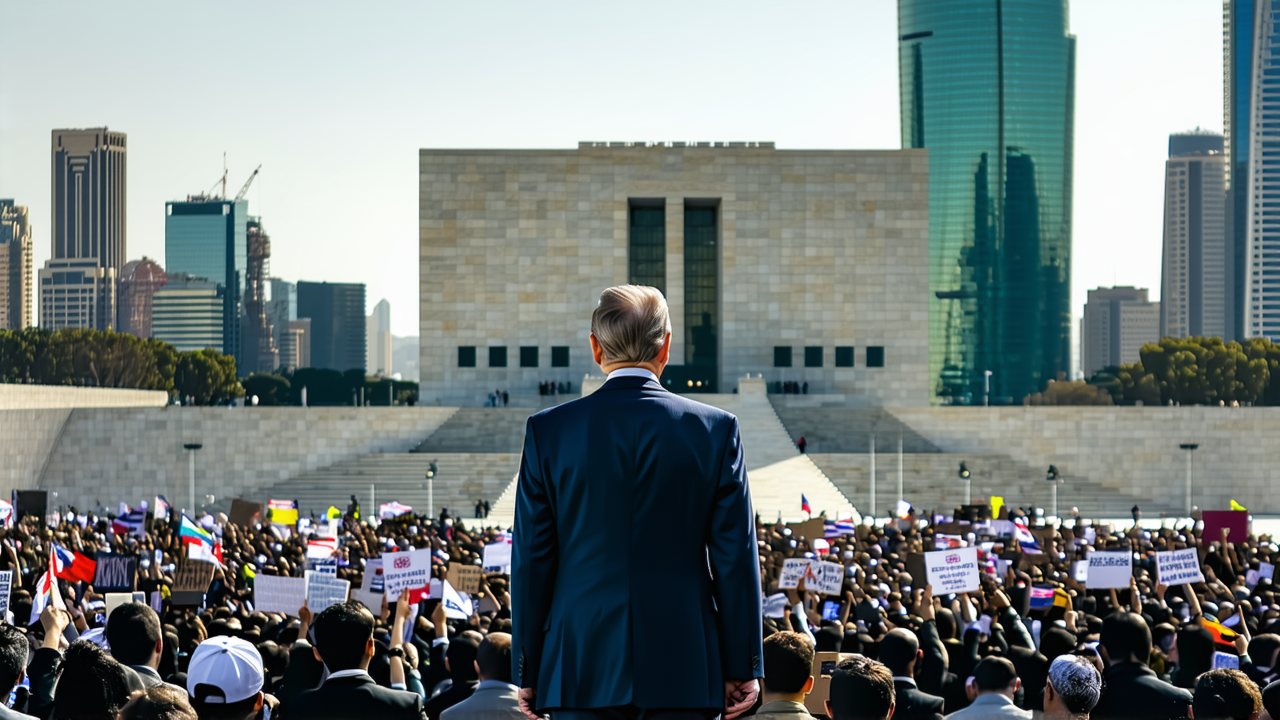US revokes Petro's visa over pro-Palestinian protest remarks
US Revokes Colombian President Gustavo Petro's Visa Over Pro-Palestinian Protest
In a move that has sparked international debate, the United States has revoked Colombian President Gustavo Petro's visa, citing his participation in a pro-Palestinian street protest in New York City. The US State Department accused Petro of engaging in 'incendiary actions' during the demonstration, where he publicly urged US soldiers to disobey orders and incite violence.
The department shared a statement on X (formerly Twitter), highlighting that during the protest, Petro stood on a New York City street and called on 'nations of the world' to form an army larger than the United States. In a powerful and controversial statement, he addressed US soldiers, urging them to 'not point their rifles at humanity' and to 'disobey Trump’s order! Obey the order of humanity!' This rhetoric has been widely criticized as provocative and unbecoming of a sitting head of state.
A source from Petro's office confirmed that the president was traveling to Bogota afterward. Despite the visa revocation, Petro, who also holds Italian citizenship, stated he would not need a US visa to enter the country. His visit to New York was part of his attendance at the UN General Assembly, where he criticized the Trump administration and called for a criminal inquiry into recent US strikes on alleged drug trafficking boats in the Caribbean.
The US government has claimed that these strikes are part of an anti-drug operation off the coast of Venezuela, a country whose president, Nicolás Maduro, has been accused by Washington of being associated with a drug cartel. Petro has raised concerns that some of the people killed in the US boat strikes may have been Colombian citizens.
The Trump administration recently decertified Colombia as an ally in the fight against drugs, though it stopped short of imposing economic sanctions. This decision has further strained the historically close relationship between the two nations, particularly under Petro, Colombia's first leftist president.
In a strongly worded social media post, Colombia's Interior Minister Armando Benedetti criticized the US decision, stating that Israeli Prime Minister Benjamin Netanyahu’s visa should have been revoked instead. He remarked, 'But since the empire protects him, it’s taking it out on the only president who was capable enough to tell him the truth to his face.' This statement highlights the growing diplomatic tensions between Colombia and the United States, as well as the broader geopolitical context involving Israel and the Middle East.
The incident underscores the complex and often contentious relationship between the US and Latin American nations, especially those led by leftist governments. It also raises important questions about the role of foreign leaders in international protests and the extent to which their actions can impact diplomatic relations.
